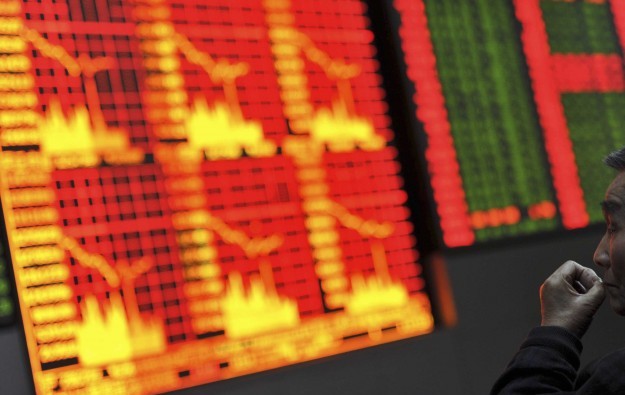Rumour China to limit tourism to S. Korea hits casinos
Oct 25, 2016 Newsdesk Latest News, Rest of Asia, Top of the deck

The dependence of many Asia Pacific destination markets on the growing number of middle class Chinese tourists has again been thrown into focus by a slump in South Korean stocks – including those of casino operators – that rely on inbound visitors for their company earnings.
Korea Exchange-listed shares in Paradise Co Ltd and Grand Korea Leisure Co Ltd – companies that each run foreigners-only casinos in South Korea – had fallen respectively by 5.02 percent and 6.80 percent as of market close on Tuesday.
Bloomberg News reported on Tuesday that the slump in the stocks of the foreigners-only casino firms began after a pessimistic media report regarding the outlook for Chinese tourism to South Korea, and comments attributed to a South Korean tourism official.
South Korea currently has 17 casinos, of which 16 are open only to foreigners. Chinese gamblers are an important source of revenue for those operations.
The Bloomberg news piece cited Kim Yeong Ju, an official at the Korea Tourism Organization (KTO) in Seoul, saying that Chinese authorities were ordering travel agents in that country to curb cheap travel packages to South Korea for a period running from November 2016 to April 2017.
No clear reason for such a possible move was mentioned in the Bloomberg story, but it said that JoongAng Ilbo, a Seoul newspaper, had reported that Chinese travel agents had been instructed to cut by more than 20 percent the number of outbound tourists from the country.
Diplomatic tensions
An August 1 report in China’s English-language Global Times newspaper – an outlet often considered the most hawkish in promoting Chinese national interests – had said some Chinese tourists were cancelling trips to South Korea following a July decision of the government there to deploy the United States-supplied Terminal High Altitude Area Defense (THAAD) anti-missile system. That latter decision has been linked to the reported development of the missile capabilities of South Korea’s neighbour North Korea, a hereditary communist state that directly borders China and maintains longstanding diplomatic relations with it.
South Korean newspaper Korea JoongAn Daily said in an August 13 report – citing that country’s tourism agency KTO as the source – that the missile defence decision had not made any difference to Chinese visitor numbers.
China is an important source market for tourism to South Korea. Chinese tourists made up 48 percent of arrivals in September, according to KTO figures. In 2015 the country received a total of 13.2 million visitors of all nationalities, producing aggregate tourism receipts of approximately US$15.2 billion according to KTO data.
The report in JoongAng Ilbo and information received by KTO on the question of a possible cut in the number of outbound Chinese tourists was based on allegations from local travel agencies in China; there had not been an official statement from the Chinese government, said Bloomberg News, citing the KTO’s Mr Kim.
There is a precedent for China taking regulatory action regarding cheap travel packages offered to its citizens. In autumn 2013, the China National Tourism Administration said the country was prohibiting the country’s domestic travel agencies from “organising tourism activities and luring tourists with unreasonably low prices”. This was understood to be a reference specifically to so-called ‘zero-fares’ tours, that make no upfront charge for travel, but earn their revenue by pressuring tourists to spend at shops that are in partnership with the tour companies.
By contrast, in August 2015, China News Service reported that mainland China’s Ministry of Public Security had started an operation called “Chain Break”, linked to tourism to South Korea by well-heeled Chinese. It was said to be aimed at disrupting foreign casinos’ access to money flows from China and those casinos’ links to individuals that scout for gamblers from China.
Related articles
-
 Philippines 2024 tourist receipts may...
Philippines 2024 tourist receipts may...Jul 24, 2024
-
 Kangwon Land 2Q net profit up 64pct...
Kangwon Land 2Q net profit up 64pct...Jul 19, 2024
More news
-
 Donaco EBITDA up y-o-y to above US$4mln...
Donaco EBITDA up y-o-y to above US$4mln...Jul 26, 2024
-
 HK listed Palasino upgrades Czech...
HK listed Palasino upgrades Czech...Jul 26, 2024
Latest News
Jul 26, 2024
Border-casino operator Donaco International Ltd has achieved a 164.17-percent year-on-year increase in its latest quarterly group earnings before interest, taxation, depreciation and amortisation...Sign up to our FREE Newsletter
 (Click here for more)
(Click here for more)
Pick of the Day
”We’ve got more traction outside of Macau at the moment. But Macau’s going be a bigger focus for us”
David Punter
Regional representative at Konami Australia
Most Popular
 Sheraton brand to exit Londoner Macao, to be Londoner Grand July 25, 2024
Sheraton brand to exit Londoner Macao, to be Londoner Grand July 25, 2024  Macau regulator probes unlicensed gaming agents July 24, 2024
Macau regulator probes unlicensed gaming agents July 24, 2024  Philippines gives 20k aliens in POGOs 60 days to leave July 25, 2024
Philippines gives 20k aliens in POGOs 60 days to leave July 25, 2024  Philippines-listed DigiPlus says not affected by POGO ban July 24, 2024
Philippines-listed DigiPlus says not affected by POGO ban July 24, 2024  Sands China 2Q EBITDA down q-o-q amid low hold, renovation July 25, 2024
Sands China 2Q EBITDA down q-o-q amid low hold, renovation July 25, 2024






